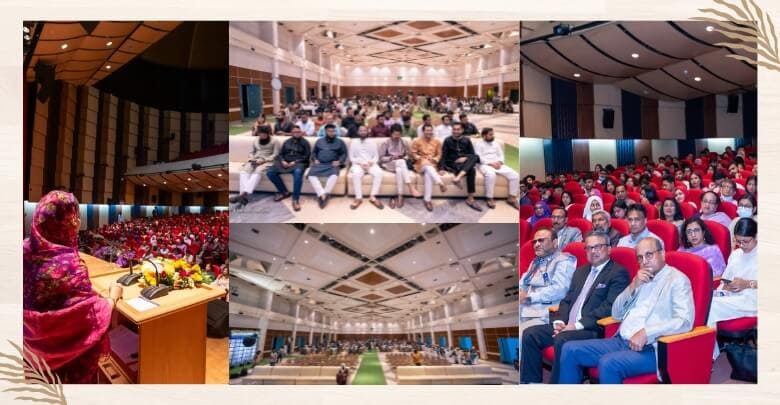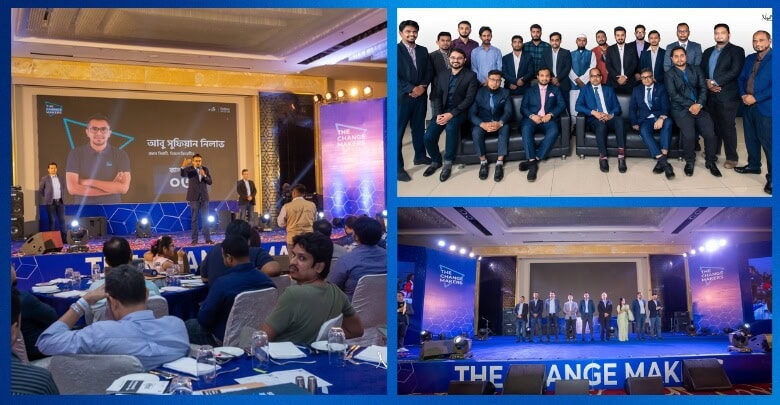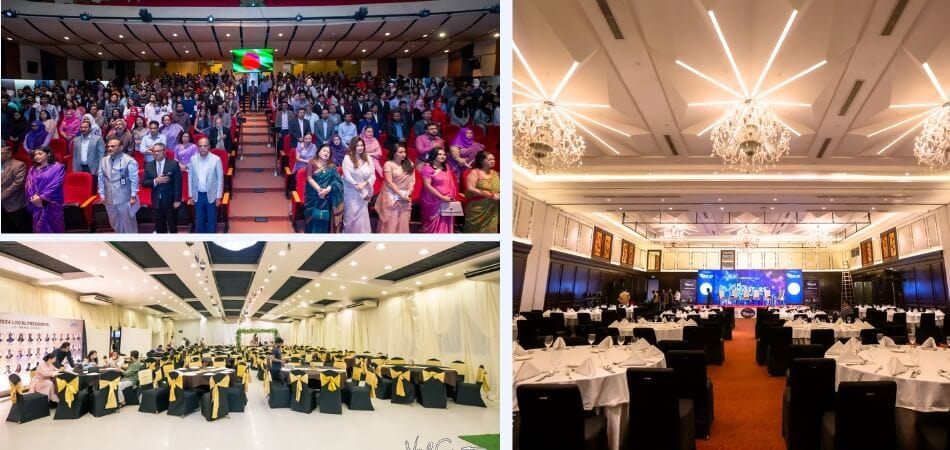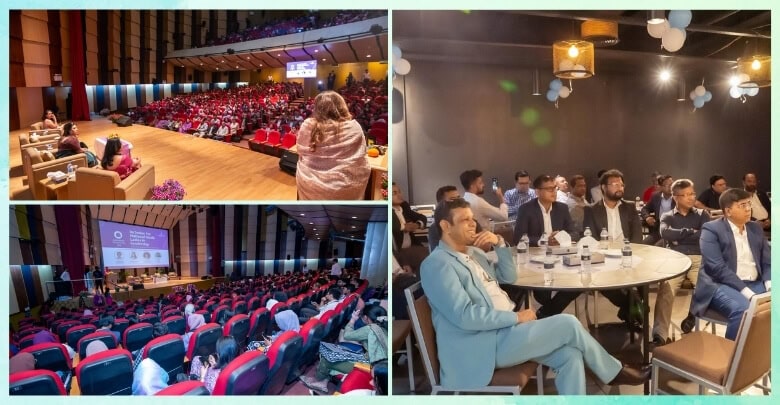Businesses have increasingly recognized the value of corporate events in achieving strategic goals in Bangladesh recently. Well-organized events can help increase brand visibility, strengthen relationships, and drive business growth. This brings us to the most crucial question: How do you set up a corporate event?
To set up a corporate event, first define its purpose and audience, establish a budget, choose a theme and format, create a project timeline, select a location, plan logistics, and leverage technology effectively.
If you are interested in learning more about event planning, our article will provide you with a comprehensive guide to dealing with these complexities.
Corporate Event: An Overview
Organizing events is vital to businesses that want to boost their industry standing, connect with clients, or celebrate successes. After all, events provide a physical platform for businesses to create meaningful connections and leave a lasting impression on their audience.

A successful professional event requires an effective corporate event management team. This includes everything from the preparation stages to the final celebration. These events can range from small, private workshops to grand conferences, each set up to meet specific business objectives.
Choice of venue, attention to attendees’ preferences, and ensuring smooth technological support are just the beginning. A well-planned corporate event not only leaves a lasting impression on its attendees but also serves as an effective marketing and communication tool.
Whether you’re looking to launch a product, encourage team spirit, or engage with potential clients, being familiar with the fundamentals of corporate event planning can set the stage for success.
Basic Components of a Corporate Event
Making plans for a corporate event can seem like negotiating a complex puzzle. However, it can be simplified by dividing it into basic components. Here are the foundational elements that make a business gathering memorable.

Purpose and Objectives
Every corporate event begins with a clear purpose. You might want to boost your team’s spirit, launch a new product, or strengthen client relationships. Identifying these goals early on guides every decision you make, from the event format to the choice of speakers.
Target Audience
The importance of knowing who will attend cannot be overlooked. This knowledge influences everything from venue selection to content type. Event organizers should pay attention to their audience’s preferences and expectations to increase engagement and ensure the event is well received.
Suitable Venue
The choice of venue can make or ruin an event. You must ensure that it not only reflects the tone and scale of the event but also that it is accessible to the attendees. Consider factors like location, capacity, and available facilities to ensure your venue supports the event’s overall success.
Content and Programming
Corporate events are all about content. Carefully planned sessions that provide value, whether through insightful speeches, interactive workshops, or engaging panels, keep attendees interested and invested. Your program should balance informational content with interactive elements to maintain energy and engagement throughout the event.
Integration of Technology
Integrating technology is non-negotiable. From simple audio-visual equipment to advanced event apps and social media integration, technology increases the attendee experience and can extend your event’s reach beyond the physical venue.
As long as you understand and effectively manage these components, you can ensure that your corporate event meets but goes beyond expectations.
How Do You Set up a Corporate Event?
Event planning can feel daunting, especially if you’re looking to leave a lasting impression on your guests. The key is to start with a clear vision and organization. This ensures that every element from the initial planning to the final execution contributes to a successful outcome.

Here are the steps briefly described.
Step 1: Defining the Purpose and Goals
The first step in setting up a corporate event is to clearly define its purpose. Are you looking to generate leads, build client relationships, or perhaps boost employee morale?
Having clear objectives will guide the rest of your planning process, influencing decisions on the theme, content, and structure of the event. Ensure every part of the event meets with these goals to maximize impact.
Consider how these goals translate into real-life outcomes. For example, if the goal is to support networking, the event should include social gatherings or small-group sessions that encourage interaction. Your agenda should include workshops and keynote speeches if your goal is education.
Step 2: Audience Targeting and Invitation
Your audience awareness is fundamental to choosing the event’s content and style. Start by identifying your attendees’ characteristics, such as industry roles, interests, and professional levels. This information helps in designing an event that speaks directly to their expectations and needs.
When you know who your audience is, send out invitations. Make sure these are compelling and informative, providing potential attendees with all the necessary details about the venue, date, time, and purpose of the event. Effective invitations not only provide essential information but also create excitement and anticipation.
Step 3: Venue Selection
Choosing the right venue is a crucial decision. It should align with the event’s tone, size, and technical requirements. Consider locations that are both impressive and practical, ensuring they are accessible for all attendees and have the necessary facilities.
Book your venue well in advance to secure your preferred dates. Additionally, visit the site to check out its logistics firsthand, such as traffic flow, room capacities, and technological supports. This on-site visit can prevent potential issues on the day of the event.
Step 4: Event Content and Schedule
Content is the foundation of your event. Start planning by outlining a detailed schedule that includes all sessions, breaks, and networking opportunities. This schedule should be designed to keep the energy high and engage participants throughout the event.
Subsequently, develop the content for each session, emphasizing relevance and variety to reach out to a broad audience. Include keynotes, panels, and workshops led by industry experts to provide valuable insights and learning opportunities. The right mix of content will enhance attendee engagement and achieve your event’s objectives.
Step 5: Leveraging Technology
Incorporating technology can significantly enhance the attendee experience. From event apps that enable networking to social media platforms for live updates, technology can play a crucial role in modern events.
Additionally, consider using online registration systems to streamline the sign-up process and gather attendee data. Effective use of technology simplifies management and enriches the participant experience.
Step 6: Choosing the Right Partners
Partnering with the right service providers is essential for delivering a successful event. Some of them offer excellent corporate event packages that include everything from event planning and management to post-event analysis. Their detailed service ensures that every aspect of the event is professionally handled, allowing you to stay focused on your guests and objectives.
By following these steps and working with reliable partners like Nijol Creative, you can ensure your corporate event is not only successful but also memorable. Each steps requires careful planning and execution, but with the right approach, your event will achieve its intended goals and leave a lasting impact.
Tips for a Smooth and Coordinated Setting Up of Corporate Event
Corporate events require careful planning and coordination. Whether it’s a small workshop or an extensive conference, each detail plays a significant role in the event’s success.

By following a set of focused tips, you can ensure that your event runs without a problem, making both the organizers and the attendees happy. Here are some straightforward strategies to keep your event planning on track.
- Define Clear Objectives: Start with a clear understanding of what you want to achieve.
- Choose the Right Venue: Ensure the venue fits your theme, capacity, and technical needs.
- Prepare a Detailed Checklist: Track every task to avoid last-minute surprises.
- Engage Reliable Vendors: Partner with vendors known for quality and reliability.
- Use Project Management Tools: Keep the planning process organized and on schedule.
- Delegate Responsibilities: Assign tasks to team members based on their strengths.
- Schedule Regular Meetings: Update and synchronize with your team regularly.
- Plan for Contingencies: Have backup plans for critical elements like venue and technology.
- Send Invitations Early: Allow attendees enough time to arrange their schedules.
- Follow Up with Attendees: Send reminders and additional information as the event approaches.
Making use of the expertise of the best corporate event management companies can also ensure that your event is not only well-coordinated but memorable. These companies bring experience and resources that can greatly enhance the efficiency and impact of your event.
FAQs About How Do You Set up a Corporate Event?
To ensure the success of a corporate event, there are several essential steps and considerations to keep in mind. From initial research to post-event evaluation, each phase plays a critical role. Here are some FAQs to guide you through the process of corporate event setting.
How Do I Start a Corporate Event as A Host?
Identify the need for the event and what your audience expects from it. Design the event by choosing its format, content, and unique aspects. Reach your target audience effectively. Ensure smooth coordination and execution on the day. Conduct a post-event assessment to assess success and gather feedback.
What Is a Corporate Event Planner?
A corporate event planner organizes meetings, conferences, trade shows, seminars, and retreats. Every aspect of event planning is handled by them, from concept to execution.
How Do You Start Off an Event?
Engage the attendees with a strong opening statement. Welcome the guests warmly and acknowledge any notable attendees or sponsors. Align the audience’s expectations with the event’s purpose.
What Are Some Key Strategies for Marketing a Corporate Event?
Invest in digital and traditional marketing strategies. Reach a larger audience via social media and email marketing. Organize your marketing messages to highlight the unique selling points of your event.
How Do You Choose the Right Venue for A Corporate Event?
Consider the tone, size, and technical requirements of your event. Location, accessibility, amenities, and cost are important factors. Get the best deal by visiting the venue before to the event.
What Technology Should Be Used During a Corporate Event?
Incorporate technology that enhances the experience for attendees. This can include event apps for networking, social media integration for broader engagement, and advanced audio-visual systems for presentations. Ensure that there is robust Wi-Fi available to support these technologies.
How Can You Manage Event Budgets Effectively?
Budget venue, catering, technology, marketing, and staffing expenses. During the planning process, track expenditures and adjust as needed. Always have a back-up fund for unexpected costs.
What Are Some Effective Ways to Engage Attendees During a Corporate Event?
Incorporate interactive sessions such as Q&A rounds, workshops, and panels. Keep the audience engaged and invested with live polling and social media. A customized agenda or networking opportunities also enhance engagement.
Final Verdict
The planning and execution of corporate events require careful detail-oriented work. So, how do you set up a corporate event? It starts with understanding the purpose and ensuring that every element aligns with this goal.
Selecting the right venue and engaging the most appropriate technology are momentous steps. Effective marketing attracts the right crowd, while thoughtful content keeps them engaged.
Always prepare for the unexpected by having contingency plans. Harnessing professional event planners’ expertise can elevate an event’s success. Ideally, the key to a smooth event lies in detailed organization and adapting to feedback to refine future events.

